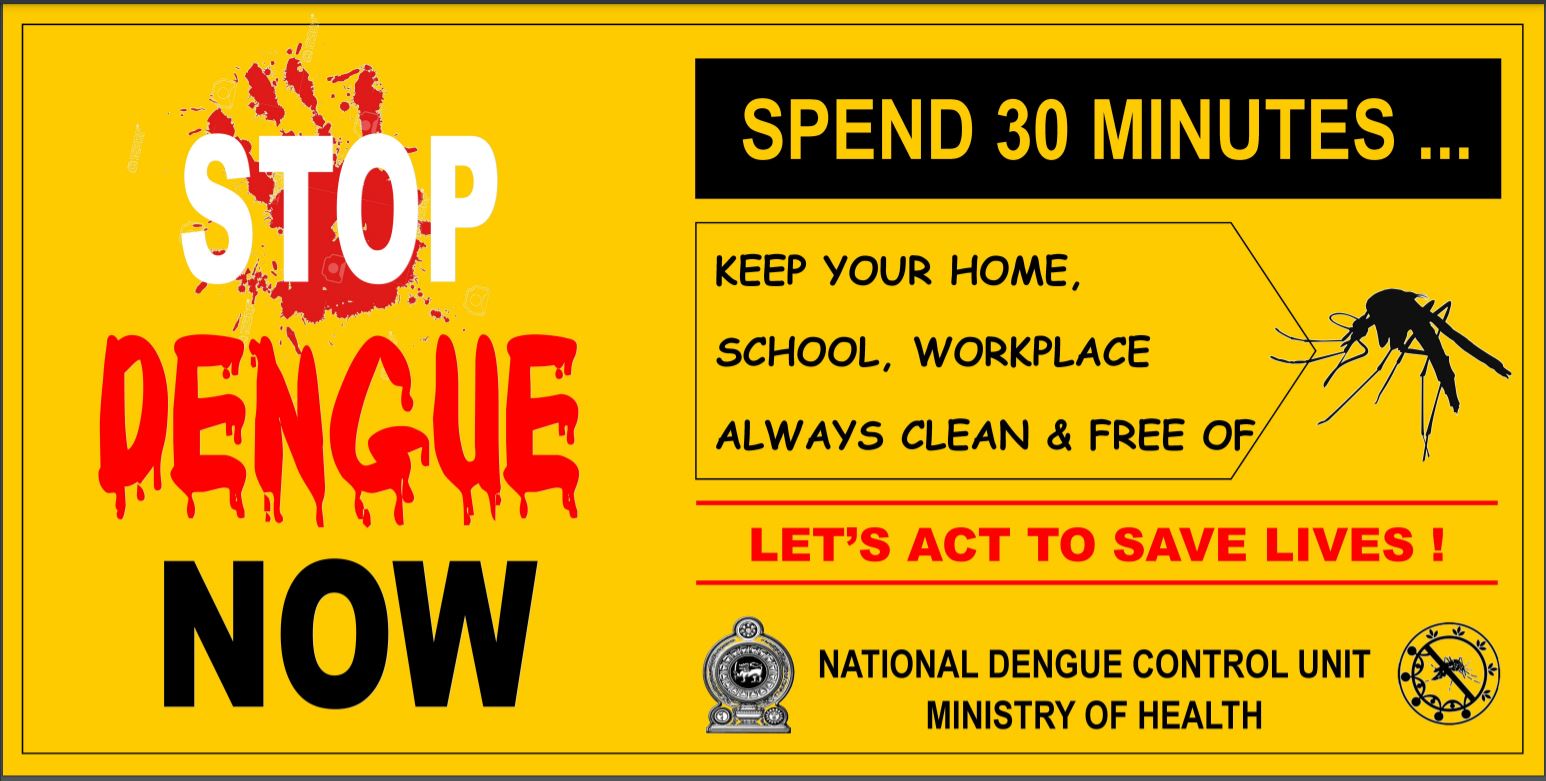Dengue Fever Spreading – Over 26000 dengue cases report in Sri Lanka
So far this year 2022 according to National Dengue Control Unit data, over 26,000 dengue cases report. Dengue fever increases in Sri Lanka, usually soon after rainfall as rains optimal for mosquitoes breeding.
Trincomalle, Uppuveli, Rathnapura, Udawalawa, Godakawela, Eheliyagoda, Embilipitiya, Kuruwita, Balangoda, Puttalam, Kalpitiya, Wennappuwa, Matara, Kurunegala, Pannala, Nikaweratiya, Kegalle, Ruwanwella and Dehiovita MOH areas have been identified Dengue high risk zones according to NDCU.

Sri Lanka Health officials have noted that an increase in mosquito population and predict that there is an increase risk of dengue spreading coming days, especially in urban and semi-urban areas. Health officials say that preventing the spread of Dengue should be given special attention as there is an increased risk of the mosquito-borne disease with the arrival of monsoon rains coming weeks.
Use Mosquito Nets, long clothing, Mosquito Repellents, Coils, closed doors & windows to avoid mosquito bites. Consult a Doctor if Fever/ Headache/ Joint pain/ Vomiting persist more than 2 days. (LankaXpress.com)

